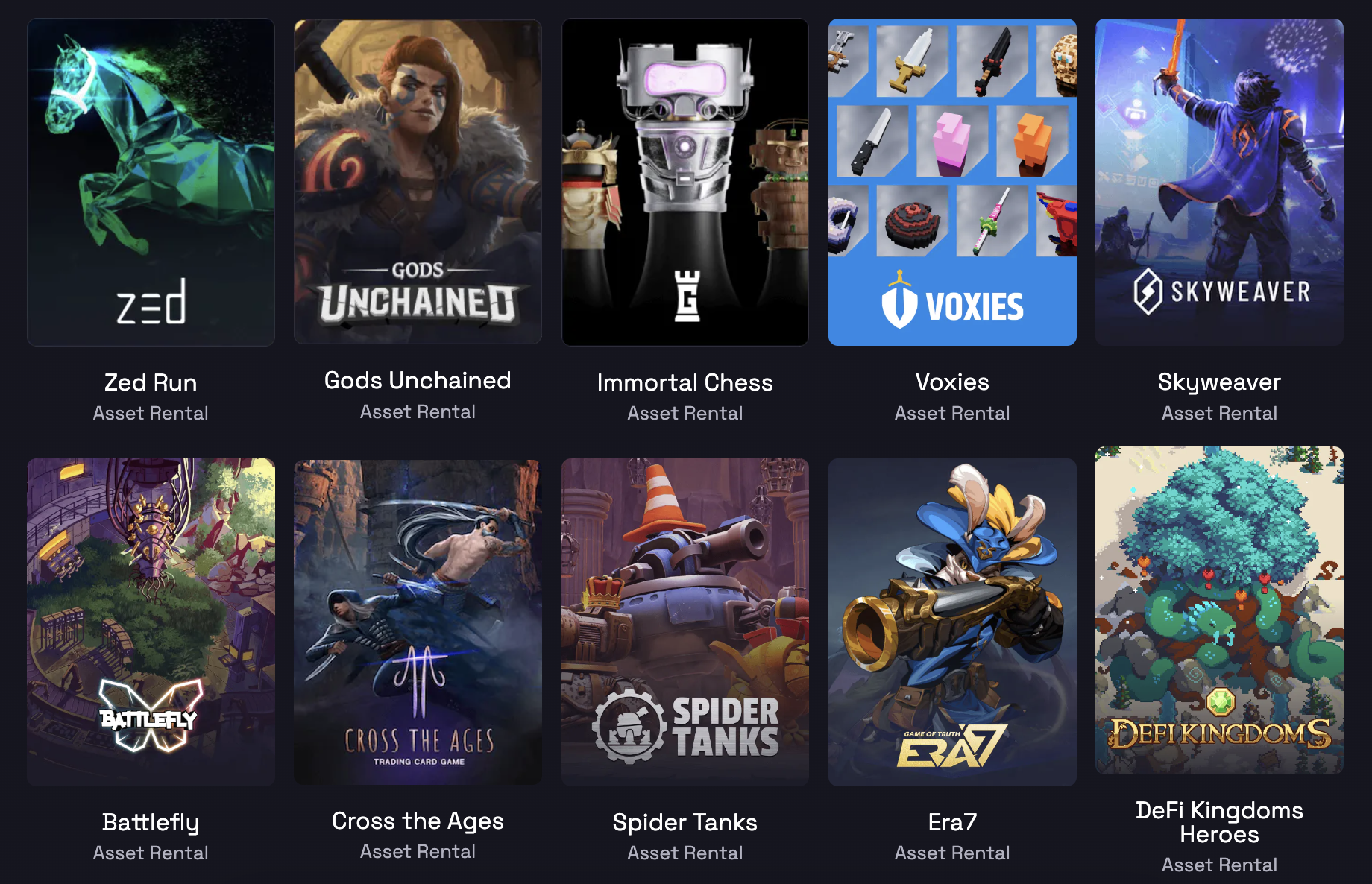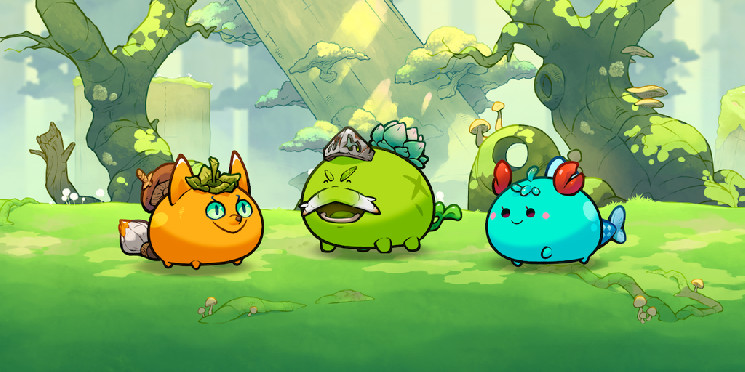Want to rent someone’s gaming $NFT like it was a Blockbuster movie—or rent out your own?
Crypto startup LootRush shared exclusively with Decrypt’s GG that it is launching its $NFT rental marketplace this Friday, allowing gamers to list their game NFTs for rent or borrow someone else’s for anywhere from a day to a year.
While LootRush launched in May last year, it’s now offering what it calls “two-sided” $NFT rentals on its platform. Gamers can list their own NFTs for rent in addition to borrowing game assets from others, like Axie Infinity’s Axie monsters or digital cards from a game like Gods Unchained.
LootRush supports several blockchains, allowing players to test out NFTs for games on networks like Ethereum’s mainnet, Ronin, Avalanche, Arbitrum, Coinbase’s Base network, Polygon, Immutable, Binance's BNB Chain, and Wemix.
For everyone just getting started on @pixels_online, don't forget that LootRush has the largest available inventory of lands to be rented 🙂 https://t.co/HstvWnms1H pic.twitter.com/dyYz03KiVz
— LootRush - rent your first gaming $NFT and earn $5 (@LootRushGames) November 6, 2023
“We’re more in the entertainment industry than actually [the] finance industry,” LootRush CEO Anderson Ferminiano told Decrypt in an interview.
LootRush’s $NFT rentals currently work for over 1,000 blockchain games, with NFTs already listed for over 100 titles, according to the company. Renters don’t need cryptocurrency to rent an $NFT, and can use their credit cards through the platform’s Stripe integration, the CEO shared.
Ferminiano sees LootRush as being akin to the “Airbnb” of gaming NFTs.
“You can think about Airbnb, right? Different owners list their houses for different prices. I think this is what we’re trying to replicate,” Ferminiano said, adding that the platform generally suggests renters list their game assets for roughly 10% of the market value of the $NFT for a one-month rental.
Under the platform’s custodial model, players can use a LootRush wallet to rent and connect to their favorite crypto games without needing to know or safeguard a “seed phrase,” or to share personal information via a “Know Your Customer” (KYC) process.
“We’re very consumer-based, so we really want to focus on the user experience,” Ferminiano told Decrypt. “That’s primarily why we didn’t want to do KYC in the beginning.”
“As the customers spend more, as they list more assets, KYC may be required,” Ferminiano added of the firm’s strategy. “But we usually do that as a second step.”

Alternatively, gamers can rent NFTs listed on LootRush and connect their own wallets. But gamers opting to use their own wallets, like MetaMask, will have to provide other NFTs or crypto tokens as collateral for the rental.
Renters will not be able to sell or transfer rented NFTs, with LootRush’s infrastructure automatically rejecting requests for sales or transfers when using its custodial wallet.
“LootRush ushered in a game-changing era of accessibility for League of Kingdoms,” said Nod Games COO Han Yoo in a statement.
“We attracted fresh players eager to test the game, reducing entry barriers and enriching the experience for existing ones with a wider array of assets,” Yoo added on why the blockchain MMO strategy game has benefitted from the platform.
LootRush, which has received investment from Y Combinator and Andreessen Horowitz (a16z), to name a few, said it’s hoping to hit $6 million in annualized rental volume by the end of this year.
Edited by Andrew Hayward
 decrypt.co
decrypt.co
